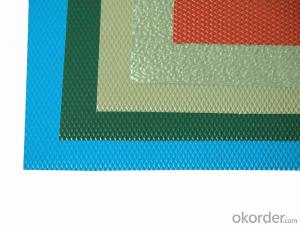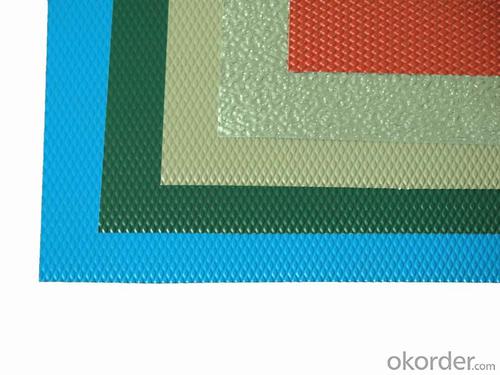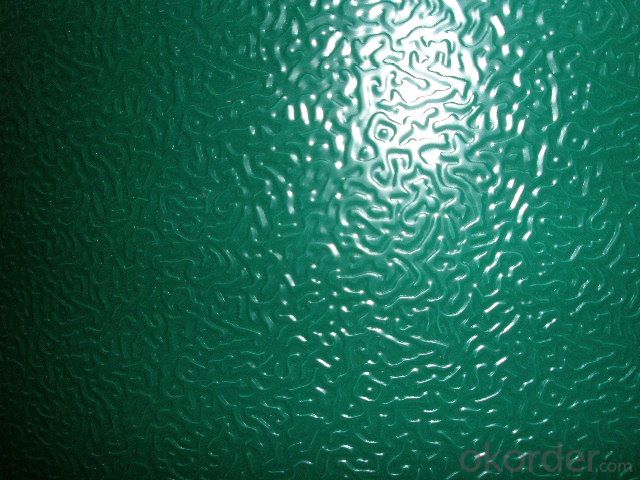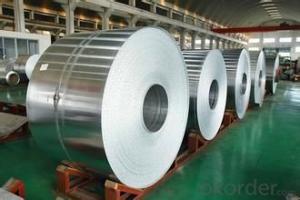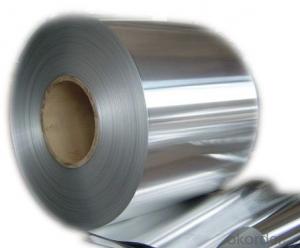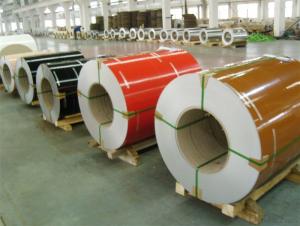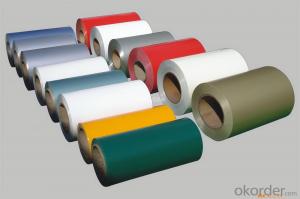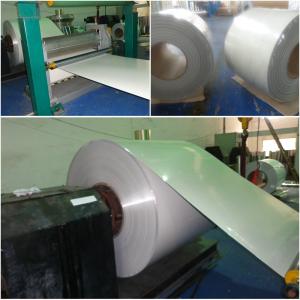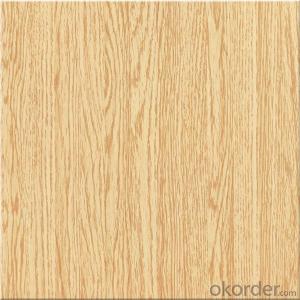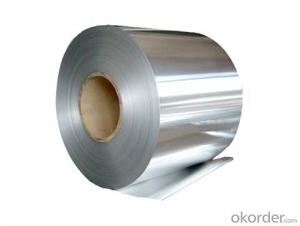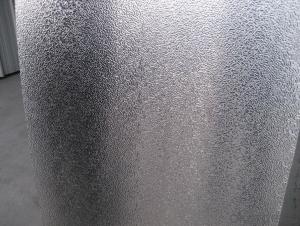032 Aluminum Coil Black Coated Aluminum Embossed Sheets with Cheap Price
- Loading Port:
- Shanghai
- Payment Terms:
- TT OR LC
- Min Order Qty:
- 5 m.t.
- Supply Capability:
- 1000 m.t./month
OKorder Service Pledge
OKorder Financial Service
You Might Also Like
Specification
1.Structure of Embossed Aluminum Sheets
Embossed Aluminum Sheets has great ductility, heat conductivity, anti-corrosion and moisture resistance properties which are very useful in the field of construction.
Embossed Aluminum Sheets is widely used for decorative purpose in construction, packing and appiance. It is also very commonly used for anti-slippery purpose in vehicles and public places.
2.Main Features of Embossed Aluminum Sheets
• Superior quality of raw material
• Reasonable and stable chemical composition
• Accurate tolerance
• Goode mechanical property
3.Embossed Aluminum Sheets Images
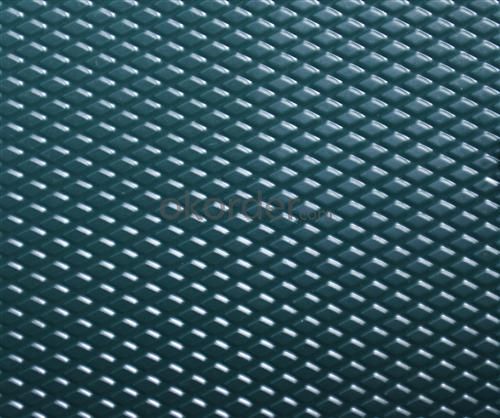
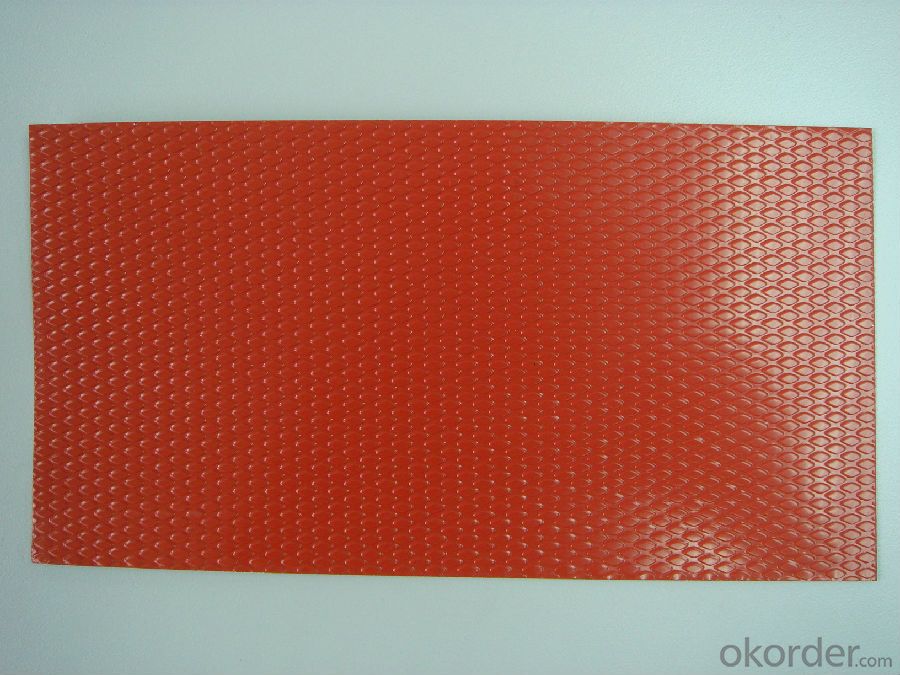
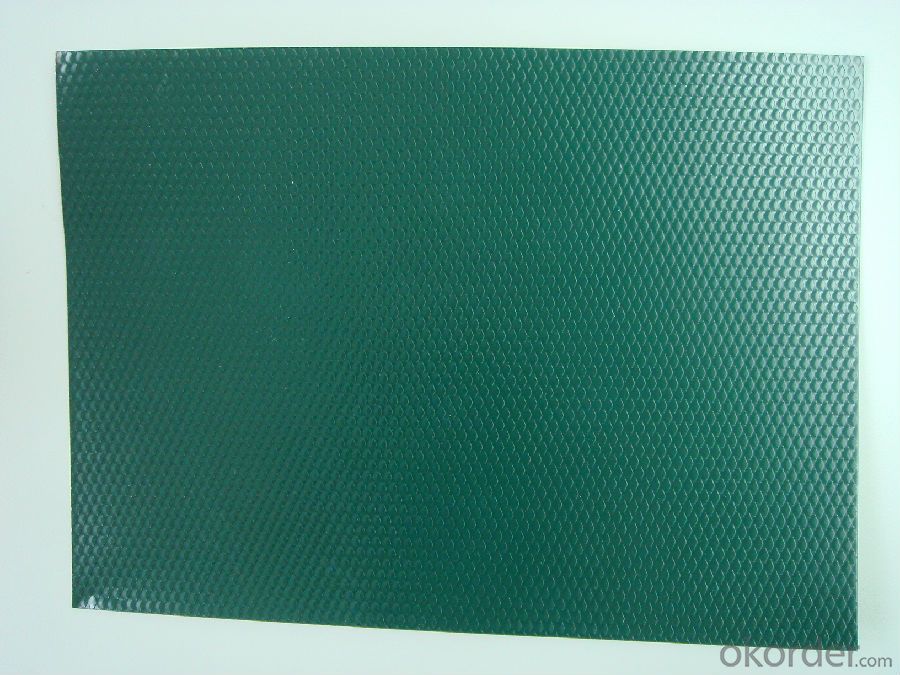
4.Embossed Aluminum Sheets Specification
| Alloy | AA1xxx,AA3xxx,AA5xxx |
| Temper | H14,H18,H24,H26,H32 |
| Thickness | 0.2mm--20mm |
| Width | 10mm--1500mm |
| Embossed Patterns | Diamond,Stucco,Bars etc. |
| Standard | GB/T 3880-2006 |
5. FAQ of Embossed Aluminum Sheets
A.How to guarantee the quality?
Customers are welcome to our mill to visit and check the products. Besides, we can arrange a third party to test Embossed Aluminum Sheets products.
B.When will you deliver the products?
Embossed Aluminum Sheets will be delivered within 35 days after receiving advanced payment or original L/C.
- Q: What happened to the aluminum coil coming out of the annealing furnace?
- There is oil on the aluminum coil and the annealing time is too long.
- Q: What is the thickness range of aluminum coils?
- The thickness range of aluminum coils can vary depending on the specific application and industry. However, typically, the thickness range for aluminum coils is between 0.006 to 0.25 inches (0.15 to 6.35 mm). This range allows for a wide variety of uses, from thin and lightweight applications such as packaging materials or electrical components, to thicker coils used in construction or automotive industries. It's important to note that these are general ranges and the specific thickness requirements may vary based on the intended use and customer specifications.
- Q: Can aluminum coils be used in the production of electrical conductors?
- Aluminum coils are indeed applicable in the production of electrical conductors due to the fact that aluminum is an exceptional electricity conductor. It possesses approximately 61% conductivity in comparison to copper and boasts advantageous features such as lightness, cost-effectiveness, and a high melting point, rendering it suitable for a variety of electrical uses. Power transmission lines, electrical cables, and transformer windings are frequently made using aluminum coils. Nevertheless, it is important to take into account that aluminum possesses a lower tensile strength than copper, which may necessitate a greater cross-sectional area to accomplish the same level of electrical conductivity. Moreover, to guarantee long-term performance and prevent oxidation, additional surface treatments or coatings may be required for aluminum coils.
- Q: Can aluminum coils be used in explosive environments?
- No, aluminum coils should not be used in explosive environments. Aluminum is a highly flammable metal, and when exposed to certain conditions, it can ignite and contribute to the spread and intensity of a fire. In explosive environments, such as those containing gases, vapors, or dust particles, the risk of fire or explosion is already heightened. Therefore, it is essential to avoid using aluminum coils in such environments to prevent potential ignition sources and ensure the safety of the surroundings. Instead, materials with higher resistance to heat and fire should be utilized in these hazardous settings.
- Q: Are there any limitations on the anodizing of aluminum coils?
- Yes, there are certain limitations on the anodizing of aluminum coils. Firstly, the size and weight of the aluminum coils can impose limitations. Anodizing is typically done in tanks or baths, so the size of the coil must fit within the capacity of the tank. Additionally, larger and heavier coils may require specialized equipment or processes to ensure proper anodizing. Secondly, the alloy composition of the aluminum coils can affect the anodizing process. Different aluminum alloys have varying levels of response to anodizing, and some alloys may not anodize as well as others. It is important to consider the alloy composition and consult with experts to determine the suitability and potential limitations of anodizing specific aluminum coils. Thirdly, the surface condition of the coils can impact the quality of anodizing. Any imperfections such as scratches, dents, or surface contaminants can affect the evenness and consistency of the anodized layer. It is essential to ensure that the coils are properly cleaned and prepared before anodizing to achieve desired results. Lastly, certain design features or complex shapes of the aluminum coils can pose limitations on anodizing. Anodizing involves the immersion of the coil in an electrolyte solution, and intricate designs or complex shapes may make it challenging to achieve uniform coating thickness. Specialized masking or racking techniques may be required to overcome these limitations. It is important to work closely with anodizing experts or service providers to understand and address any limitations specific to the aluminum coils and achieve the desired anodizing results.
- Q: What is the common color of aluminum coil membrane?
- The blue transparent membrane is the most common.
- Q: How do aluminum coils contribute to the corrosion resistance of marine applications?
- Aluminum coils play a crucial role in enhancing the corrosion resistance of marine applications. This is primarily due to the unique properties and characteristics of aluminum as a material. Firstly, aluminum has a natural oxide layer that forms on its surface when exposed to air, which is highly resistant to corrosion. This oxide layer acts as a protective barrier that prevents further oxidation and corrosion of the metal. This inherent property of aluminum makes it an ideal choice for marine applications, where constant exposure to saltwater and moisture can be highly corrosive. Furthermore, aluminum coils can be alloyed with other elements such as magnesium and manganese to further enhance their corrosion resistance. These alloying elements not only strengthen the aluminum but also improve its resistance to pitting and crevice corrosion. Pitting corrosion occurs when localized damage to the oxide layer exposes the underlying metal, while crevice corrosion occurs in areas where oxygen is restricted, such as gaps or joints. By alloying aluminum, the coils become more resistant to these types of corrosion, making them highly suitable for marine environments. Moreover, aluminum coils can be coated with protective finishes such as anodizing or painting, which provide an additional layer of protection against corrosion. Anodizing involves creating a thicker and more durable oxide layer on the aluminum surface, thereby increasing its resistance to corrosion. Painting, on the other hand, acts as a physical barrier that shields the coils from direct contact with corrosive elements present in the marine environment. In conclusion, aluminum coils contribute to the corrosion resistance of marine applications through their natural oxide layer, alloying with other elements, and the option of protective finishes. These characteristics make aluminum coils highly durable and capable of withstanding the harsh conditions encountered in marine environments, ensuring their longevity and reliability.
- Q: Why does it take less energy to get aluminum metal from used cans than to get it directly from the ore?
- in order to extract the raw aluminum, you have to heat everything and melt it first, then remove the stuff that precipitates out as it cools or forms via chemical reaction with catalysts you introduce. With aluminum cans, you don't have to raise the temperature much above the melting point of aluminum, since it's already the substance in the can with the highest melting point. With aluminum ore, there can be anything in the ore with pretty much any melting point. In particular, if the ore contains an alloy of aluminum and a metal with a higher melting point than aluminum, then rest assured, you will have to raise the temperature of the ore above the melting point of aluminum in order to melt that alloy, In any case, because the maximum required temperature of the smelter needed to melt used aluminum cans is necessarily lower than the maximum temperature required to work with the ore, less energy is required to get aluminum from used cans than from ore.
- Q: Can aluminum coils be used in the production of solar panels?
- Yes, aluminum coils can be used in the production of solar panels.
- Q: Are aluminum coils suitable for thermal insulation?
- No, aluminum coils are not suitable for thermal insulation. Aluminum is a highly conductive material, meaning it readily transfers heat. This makes it ineffective in preventing heat transfer between different areas or maintaining a desired temperature within a space. For thermal insulation purposes, materials with low thermal conductivity, such as fiberglass, mineral wool, or foam insulation, are preferred as they minimize heat transfer and provide better insulation.
Send your message to us
032 Aluminum Coil Black Coated Aluminum Embossed Sheets with Cheap Price
- Loading Port:
- Shanghai
- Payment Terms:
- TT OR LC
- Min Order Qty:
- 5 m.t.
- Supply Capability:
- 1000 m.t./month
OKorder Service Pledge
OKorder Financial Service
Similar products
Hot products
Hot Searches
Related keywords
